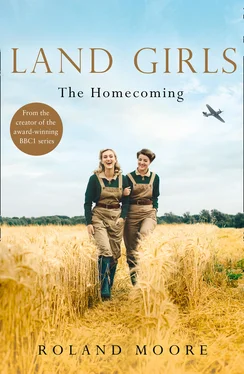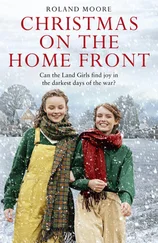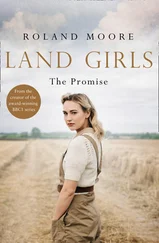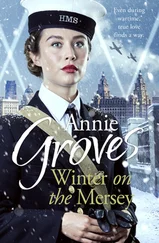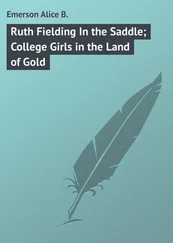Since meeting Henry, Connie rarely thought of those times before she joined the Women’s Land Army; shutting out those dark bedsit days and endless nights. It had been a different time. A life that she hoped she’d never have to go back to.
Connie’s thoughts were broken as a rough, wooden broom ran over her boots.
“Oi, do you mind?” Connie spluttered.
The old guard was sweeping the platform with an irritated staccato motion, sending clods over the side onto the track, where they would be someone else’s problem.
“Disgraceful,” the guard replied, without dignifying Connie with eye contact. “Brinford won silver in Best Rural Station last year. I don’t need this clutter on me concourse.”
“There is a war on,” Connie muttered, not giving a damn for his concourse. What was a concourse anyway? The guard continued along the platform, the wide broom head scything a path through the waiting passengers.
Suddenly Connie felt a tap on her back. She turned around, her mouth ready to unleash some angry words on any do-gooder. So what if her boots were muddy? She probably had dirt in her hair and was enveloped in the unmistakable perfume of cow dung too. But it was a friendly face that greeted her. Joyce Fisher was smiling at her. Mid-twenties, a little older than Connie, Joyce was stoic and sensible, with a sunny surface. She was a woman committed to patriotism and doing her bit to win the war. After all, that was all Joyce had to cling onto, wasn’t it? She’d lost so much and all the time the war was raging it stopped her dwelling on the thoughts of loss in her own head. The family gone forever in Coventry. If the war ever ended, then Connie suspected that Joyce would find the silence hard to deal with.
“I thought I was going to miss the train,” Joyce said, her soft eyes and sensible permed hair a welcome and reassuring sight.
“There’s no sign of it yet,” Connie replied. “Still, doubt it’ll be late.”
Joyce sighed in relief, unflappable as always. She handed Connie a small greaseproof-paper packet. “Cheese and an apple,” Joyce said, by way of explanation. She’d waited behind at Brinford Farm as the farmer’s wife had offered some food for their journey back to Helmstead. Joyce was worried that, despite the woman’s kindness, she would take so long to wrap it all up that Joyce would miss the train. Not to mention the next one. “But I didn’t want to be rude and just walk off.”
Connie thanked Joyce and they opened their wrappers. Connie bit into her apple, wrapping the cheese back up for later. She knew Henry might like a bit of that.
The guard stopped his sweeping and eyed them suspiciously. “Hope you’re not making any more mess,” he muttered, moving with surprising speed back towards them. How could he have heard them unwrap a package at that distance?
“I’ve a good mind to give him what for,” Connie said under her breath. She’d always fought her own battles and would never back down from a scrap. But this time Joyce touched her arm, holding her back. Joyce believed it was better to pick your battles, not engage in every skirmish at once.
“I leave you for ten minutes and all sorts happen. What’s going on here?” Joyce asked.
Connie shook her head. It was nothing.
“That’s what you said when you smashed the pub window.” Joyce smiled.
Connie smiled at that memory too, a little embarrassed and amazed that she’d had the brass neck to do that. But the landlord had diddled them out of change one too many times. And he was a lecherous old sod, who made them all feel uncomfortable with his roving eyes. Henry had been annoyed about that, drifting into a sullen sulk for several days until Connie blurted out an apology. He’d given her a lecture about turning the other cheek. Connie had found herself drifting off as the words washed over her; annoyed that Henry was patronising her as if she was still a little girl at the children’s home.
In the early evening sun, the two weary friends stretched their aching backs and Connie ate her apple. Behind them, a poster warned housewives not to take the trains after four o’clock so that factory workers could use them. Another showed two women chatting, not realising that a sinister man in a hat and coat was ear-wigging. Careless talk costs lives. Some more RAF pilots from Brinford Air Base decamped on the platform, their bodies laden with kit bags and great-coats. Connie scanned all the faces on the platform. She and Joyce were the only two Land Girls heading back. But there was an assortment of other travellers – service men, factory workers, a policeman and a middle-aged woman, who was clutching the hand of a nine-year-old girl. The little girl, her blonde hair in ringlets in a style that had been popular ten years ago, had been crying. Connie noticed the snaking lines of old tears on her chubby face and the way she was sniffing as she tried to control the flow. Before Connie could look any more, a portly man obscured her view – his shirt stretched tight over his large belly like the tarred cloth around Finch’s haystack. The man’s eyes darted to the distance in search of the train. He wore a trilby hat and a camera dangled around his neck, resting on the cushion of his stomach.
Suddenly the guard blew his whistle and everyone perked up as the plume of smoke from the steam train was glimpsed from behind a hill. Slowly the train chugged into view and Connie forgot the other passengers on the platform. Now it was all about getting a seat in one of the carriages. She needed to sit down. And from the weary look on Joyce’s face, she did too. The two friends walked to the edge of the platform, trying to predict the position where the carriage doors would be. This was a routine that they had perfected since their secondment to Brinford. Each evening they would wait for the train. Each evening they would try their best to secure a seat in one of the crowded carriages. The train came to a halt, the smell of soot thick in the air. The passengers already on-board flowed out of the carriage doors like water from a colander. And, with the train vacated there was the relatively good-natured but nonetheless urgent rush of the new passengers to find a seat. Some soldiers held back, allowing Connie and Joyce to get on first. Connie smiled charmingly back – thank you, kind sirs – and then suddenly darted, with little hint of any ladylike grace, along the carriage corridor to find an empty compartment.
They ducked under an RAF flyer’s arms as he hoisted his kit bag up into the baggage rack and found themselves in an empty six-seat compartment. Mission accomplished! Connie and Joyce sat nearest the windows – until Joyce quickly changed her mind and sat next to Connie.
“Forgot, I don’t like going backwards.”
As the carriages filled up and the guard’s whistle became more impatient, Joyce asked Connie whether Henry would be at the vicarage when she got home. Connie didn’t know. Often Henry would cycle around the village in the evenings, administering succour and support to his parishioners.
“I told him, he wants to kick those needy old biddies into touch, he’s a married man now,” Connie said, partly to make Joyce laugh and partly to shock the middle-aged businessman who had entered their compartment. The businessman sat down and defensively rustled his newspaper open, a makeshift shield of the Times crossword to block out such coarseness for the duration of the journey.
The compartment filled up. The young girl who had been crying and her stern-looking mother entered. And then a fresh-faced young soldier arrived to make up the six. He sat down and studiously attempted to roll a cigarette for the first ten minutes of the journey. He obviously hadn’t been smoking long and was all fingers and thumbs, with more tobacco ending up in his lap than in the cigarette paper. Connie was itching to snatch it from him and do it herself, but figured that wouldn’t be the sort of thing a lady would do.
Читать дальше
